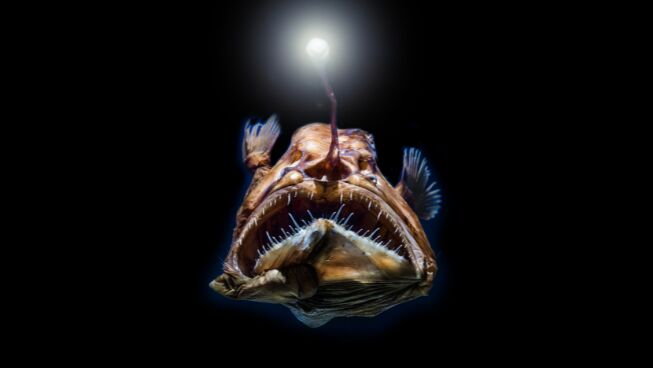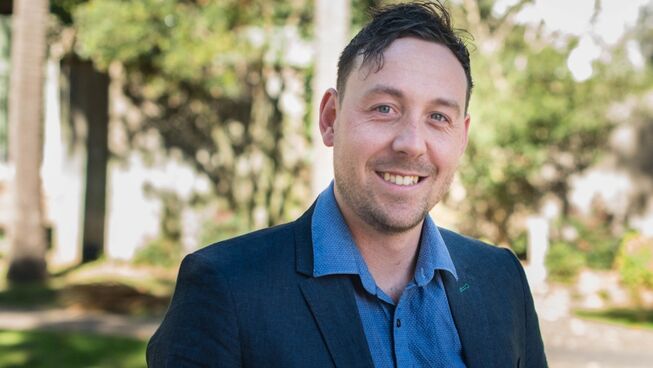The Collective Dark Night of the Soul

When I was dating my (now) wife we used to drop by her Parents’ place after church for lazy Sunday afternoons. It would involve board games, dinner and Attenborough documentaries together, and occasional unplanned naps on the couch during said documentaries. Anyway, I’ve always been fascinated by the sea creatures that lurk in the deepest parts of the ocean. Far below the depths of what we even knew was possible until a short time ago.
Thanks to modern technology we’ve been able to explore and start to understand some of the darkest ditches and crevices within our own complex planet, and new horrors are being discovered frequently. And what’s perhaps most interesting is the way these creatures have adapted to their circumstances. Under the intense pressure that would instantaneously crush a man, these creatures have worked out how to thrive in the darkness, morphing and mutating their bodies and senses in strange and unfamiliar ways, becoming a source of light where there is none. And recently it’s made me think about how we as a collective human race are adapting to our recent circumstances.
These few years have been tough for everyone, and there’s still a way to go yet. And I wonder how we’ll come out of it after brewing in a concoction of darkness, confusion and pressure. When Covid-19 started to take shape we were in a historically unique place to triumph over it – armed with modern medicine, scientific knowledge, technology, and an unprecedented level of global connectedness. And yet many of us are languishing. Spending more time on the internet than ever before, angry, exhausted, anxious, and seeing sides of ourselves that we didn’t know were there. Being morphed and contorted in strange and unfamiliar ways perhaps.
I was struck by some advice the other day, that mentioned reading something old. Like really old. To help get through these dark times. Something disconnected from the pandemic, vaccines, headlines, news feeds, maybe even from our own claustrophobic thoughts. Something that could speak with fresh eyes, and a healthy sense of perspective. So I decided to raid my book shelf, and came across The Dark Night of the Soul by St John of the Cross – A Spanish Priest that lived from 1542-91 and was beset by his own trials and times of darkness.
It’s a relatively short book, clocking in at around 130 pages. And it does a very interesting thing indeed. He writes a short poem, and then spends the book expounding what he means by it. Not unlike being given a tour of the catacombs by the chief architect, moments before needing an emergency escape route yourself. A picture perfectly accompanied by the song of the same title by Danger Mouse and Sparklehorse, which ran on constant loop in my mind as I read it (just to add to the ominous/foreboding tone).
So I waded in and started familiarising myself with the author and his mystic wisdom, and there’s been plenty of things to ponder since. He opens by sharing some thoughts on our ‘imperfections’ and how we measure up against the 7 Deadly Sins. Oh yeah! Remember those ol’ things? If you asked me what the 7 deadly sins are, I could maybe name 4? Greed, Lust, Pride…. Let’s say 3. The others of course are Envy, Gluttony, Wrath, and Sloth. While this moral concept has mostly slipped out of the popular imagination (unless you’ve been scarred by the movie Se7en), they remain powerful categories of destructive thought and deed that still play a major part in the psychodrama of modern life. How many of these vices have started squeezing us just that bit tighter during the pandemic I wonder? The author makes the case that we’re all captive to these in one way or another. Even for most Christians, who haven’t encountered the dark night, we give into our own nature in creatively novel, and ugly ways, threatening to undo the work that’s begun. Which is why a season of suffering can actually bring renewal.
What does he mean by dark night of the soul? Well by soul he’s referring to the inner being that governs our behaviour, our morality, our identity etc.. This soul, is often in a state of conflict, being pulled in all kinds of directions, regularly distracted from what really matters by grand ambitions and sensory pleasures. Sitting ducks that can be devastated when the maelstroms of life break through our calculated plans and defences. All of a sudden our ambitions seem trivial, and the things we used to enjoy don’t bring the same pleasures and comforts anymore. Know the feeling?
So how do we come out of it and what do we gain by all this? Well it’ll depend on how you view God primarily (which I’ll come to), but at the very least there are some helpful ideas to put in the back pocket. And it’s important to understand our emotional response to suffering. Often we are overcome by fear and doubt, as we become more aware of the shadow of death. We can either give in to the distress and despair, or embrace the degree of illumination and clarity that adversity brings. The saint talks about this as a time of contemplation, where we let the new reality stare us down and reveal what’s been there all along. Only then can we let go of the comforts and habits that controlled our behaviour, and instead let a revolution of the mind, heart, and spirit sweep through our being. We can have a newfound gratitude for things once presumed or taken for granted. We can repurpose and rewire our desires to instead serve our fellow man. We can move from the sensual to the spiritual, from vice to virtue, from the temporal to the everlasting. We can be ok with new realities and embrace the moment, weakened yet refined, and full of wisdom that only lived experience can teach.
Personally I’ve had it pretty good the last few years, and I’m deeply grateful for this. And yet at the same time it’s been the hardest few years of my life in a relatively comfortable existence. So leaning on other people’s lived experiences of suffering has helped prepare me for dark moments, and I hope I can do the same for others when the moment comes. And there will be plenty of those moments ahead. Time and chance have ransacked families, futures, hearts and hopes. And so I want to commend letting contemplation be our guide. Being stripped bare, doesn’t have to mean the end, but can be the beginning. Sometimes a season of trauma can be a time to start anew. To forget what we think we know, and to embrace uncertainty and mystery. Perhaps as we all come out of this collective dark night of the soul, there’ll be opportunity for widespread societal change for the better. But I also hope there’ll be widespread spiritual change for the better, as we maybe contemplate human frailty and weakness.
The Christian God is often framed in two ways. The first being that he is imminent. He is closer than your left hand, and more present than your pumping heartbeat. He is intimately familiar with his creation, including knowing everything about us, from beginning to end, with all of our wounds and scars. He is the compassionate God who desperately wants us to come back to him, or to consider him for the first time. Christians are often comfortable talking about this side of God, because Jesus vividly shows what that radical compassion, forgiveness and sacrificial love looks like - particularly on the cross.
But the second way God is framed is in his transcendence. Where he is the God that oversees suffering, evil and death. Where his ways and means provoke existential questions and anguish. Where grey areas increasingly discolour our comforts, our motives and our actions. Where we live in a world with sea otters on the one hand, and Goblin Sharks on the other. There is a wildness to God’s nature that ought to shake us, as we all too easily embrace the squeeze from our own vices. God is not a figment of our imagination, but we are a figment of his. The eternal, omniscient, omnipresent, sovereign, righteous judge that cannot dismiss human imperfection and evil at no cost. Human achievement tends to obscure the ferocity of God, but every so often the chaos intrudes and reminds us of the chasm between deity and creature. And if he’s real, surely we ought to respect the one who has mastery over this chaotic landscape.
For Christians the dark night of the soul is of particular value when we are confronted by our mortality. It’s an opportunity to realign ourselves with our maker, to sustain ourselves on prayer, and be reinvigorated by his wild and cosmic love. Perhaps the most memorable idea in the book is the succinct phrase “In the darkness, and yet safe”. The question of suffering and evil is often levelled at Christianity as reason that faith is irrational. And yet not many other worldviews could make a statement like that. Suffering need not be the end of life, but can be a new beginning. Perhaps we can plummet the depths and not be crushed after all.
In the darkness, and yet safe.


